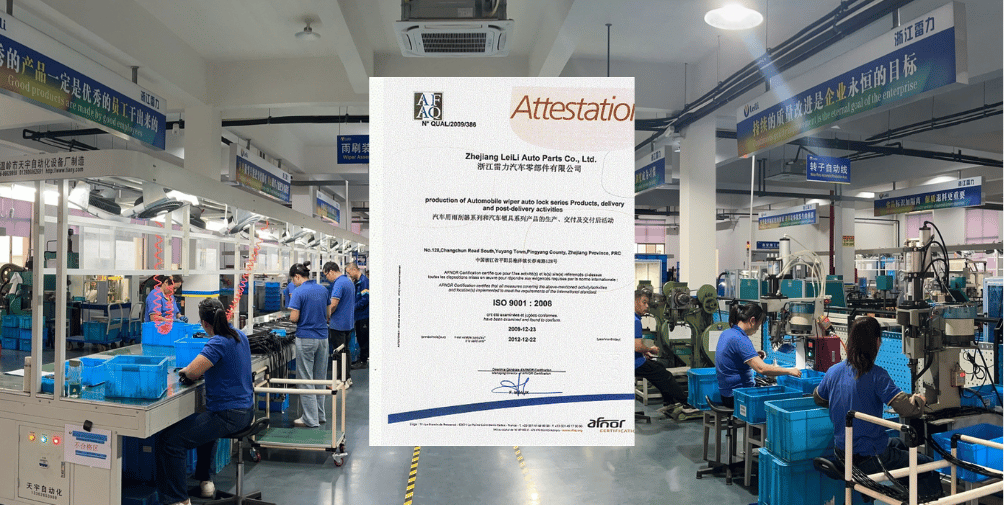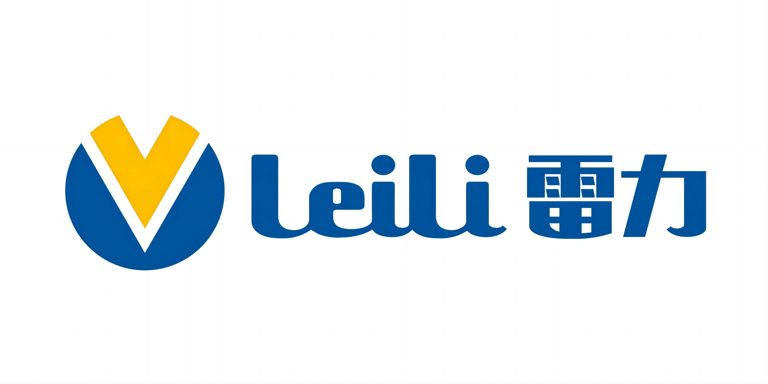ISO9001: Mastering Quality Management Systems
Unlock the potential of ISO9001 for your business. Learn key principles, benefits, and implementation tips for a robust quality management system.
LEILI
Hower Yang
7/12/20254 min read


Understanding ISO 9001: Key Principles Explained
ISO 9001 is a cornerstone in the world of quality management. It sets the standard for ensuring consistent quality in products and services. This international standard is applicable to any organization, regardless of size or industry.
Understanding ISO 9001 is crucial for businesses aiming to enhance their operations. It provides a framework that emphasizes customer satisfaction and continuous improvement. Implementing this standard can lead to significant benefits, including improved efficiency and reduced waste.
ISO 9001 certification is more than just a badge of honor. It demonstrates a commitment to quality and can open doors to new market opportunities. Companies like Leili Auto Parts have reaped the rewards of this certification.
In this guide, we will explore the key principles of ISO 9001. We will also discuss the benefits and challenges of implementing a quality management system.
What is ISO9001?
ISO 9001 is a globally recognized standard for quality management systems. It offers a structured framework that organizations can use to ensure high-quality products and services. This standard has been designed to work for businesses of all sizes and in every industry.
At its core, ISO 9001 focuses on several key principles that drive quality and customer satisfaction. These principles aim to ensure that organizations can meet both customer and regulatory requirements consistently. By following ISO 9001, businesses can enhance their operations and provide better outcomes for their clients.
The standard is built around a process-driven approach that includes:
Customer focus
Leadership
Engagement of people
Process approach
Continuous improvement
Evidence-based decision making
Relationship management
This comprehensive approach supports organizations in streamlining their processes and achieving strategic goals. Embracing ISO 9001 can help businesses build a foundation of quality and accountability.
The Seven Key Principles of ISO 9001
The essence of ISO 9001 lies in its seven foundational principles. These principles guide organizations towards excellence in quality management. Each principle supports a particular aspect of quality assurance.
Customer Focus is the first and foremost principle. Businesses must strive to understand and meet customer needs, aiming to enhance satisfaction consistently. By prioritizing customer satisfaction, companies can build long-term loyalty and trust.
Leadership ensures that leaders establish a unified direction and foster a conducive environment. Strong leadership is vital for aligning the organization's mission and encouraging involvement at all levels.
Engagement of People highlights the importance of involving all employees in the quality process. Organizations should empower their workforce, recognizing that engaged employees contribute to better outcomes.
Process Approach emphasizes managing activities as processes that work collectively as a system. Understanding interconnections within processes leads to more efficient operations and optimization.
Improvement is a relentless pursuit within ISO 9001. Organizations are encouraged to regularly review and improve their systems, fueling innovation and efficiency. This principle keeps businesses agile and responsive.
Evidence-Based Decision Making requires organizations to make decisions based on the analysis and evaluation of data. This approach minimizes risks and maximizes effectiveness.
Relationship Management focuses on fostering good relations with suppliers and other partners. Organizations can achieve sustained success by managing relationships strategically. This principle encourages collaboration and mutual benefit across the entire supply chain.
Benefits of Implementing a Quality Management System
Adopting a quality management system like ISO 9001 can transform an organization. It creates consistent quality, boosting customer confidence. Consistency reduces errors and waste, saving time and resources.
There are several key benefits to implementing ISO 9001:
Enhanced customer satisfaction and trust.
Improved efficiency through streamlined processes.
Stronger employee engagement and accountability.
Increased market opportunities and competitive edge.
ISO 9001 also helps businesses manage risk. By identifying potential issues early, organizations can prevent them from developing into major problems. This proactive approach leads to better decision-making and increased resilience in changing environments.
Moreover, having a certified quality management system can distinguish a company in the marketplace. It signifies a strong commitment to quality and regulatory compliance. This can open doors to new business opportunities, particularly in markets where quality certifications are essential. Overall, ISO 9001 fosters sustainable growth and long-term success.
ISO 9001 Certification Process
Achieving ISO 9001 certification involves several steps, each requiring careful attention to detail. Initially, organizations need to assess their current quality management practices. This helps identify gaps that need addressing to meet ISO 9001 requirements.
The certification process typically includes the following steps:
Conducting a gap analysis to understand current compliance levels.
Developing a comprehensive plan to address identified gaps.
Implementing necessary changes to align with ISO 9001 standards.
Training staff on new procedures to ensure adherence.
Performing internal audits to evaluate the effectiveness of the quality management system.
Once these steps are completed, an accredited certification body conducts an external audit. This audit is crucial to verify that the organization meets all ISO 9001 requirements. Any non-conformities identified must be resolved before certification is granted.
Certification is not a one-time event. Organizations must undergo regular audits to maintain their status. This ensures they continue meeting the stringent standards of the ISO 9001 framework. Regular reviews and updates are essential to reflect ongoing improvements and adaptations in business practices.
ISO 9001 in Practice: The Case of Leili Auto Parts
Leili Auto Parts serves as a prime example of ISO 9001 implementation in the manufacturing sector. This company leverages the standard to enhance product quality and operational efficiency. By incorporating ISO 9001, Leili Auto Parts demonstrates its commitment to excellence and customer satisfaction.
The company follows key practices under the ISO 9001 framework:
Prioritizing customer feedback to drive improvements.
Streamlining processes to reduce waste and boost efficiency.
Fostering a culture of continuous improvement.
These practices help Leili Auto Parts maintain its reputation and expand its market presence. The certification not only strengthens its brand but also improves relationships with suppliers and partners. By adhering to ISO 9001 principles, the company continues to thrive in a competitive industry.
Common Challenges and Tips for Success
Implementing ISO 9001 can present challenges. Businesses often struggle with change management and resistance from staff. Successful adoption requires a strategic approach to overcome these hurdles.
Organizations can tackle these challenges by focusing on the following tips:
Foster open communication to address employee concerns.
Provide training and support to ease transition.
Break down processes into manageable steps.
These steps can lead to a smoother implementation process. Regular audits and reviews help maintain compliance with ISO 9001. Encouraging employee involvement boosts morale and drives success. This proactive approach can turn potential roadblocks into opportunities for growth and improvement.
Conclusion: Why ISO 9001 Matters for Your Business
ISO 9001 offers a robust framework for enhancing quality and efficiency. Adopting this standard can help businesses meet customer needs effectively. This leads to increased satisfaction and loyalty.
Moreover, ISO 9001 certification can open new market opportunities. It boosts your company’s reputation by demonstrating a commitment to quality. Thus, ISO 9001 is a wise investment for long-term success.
